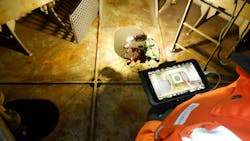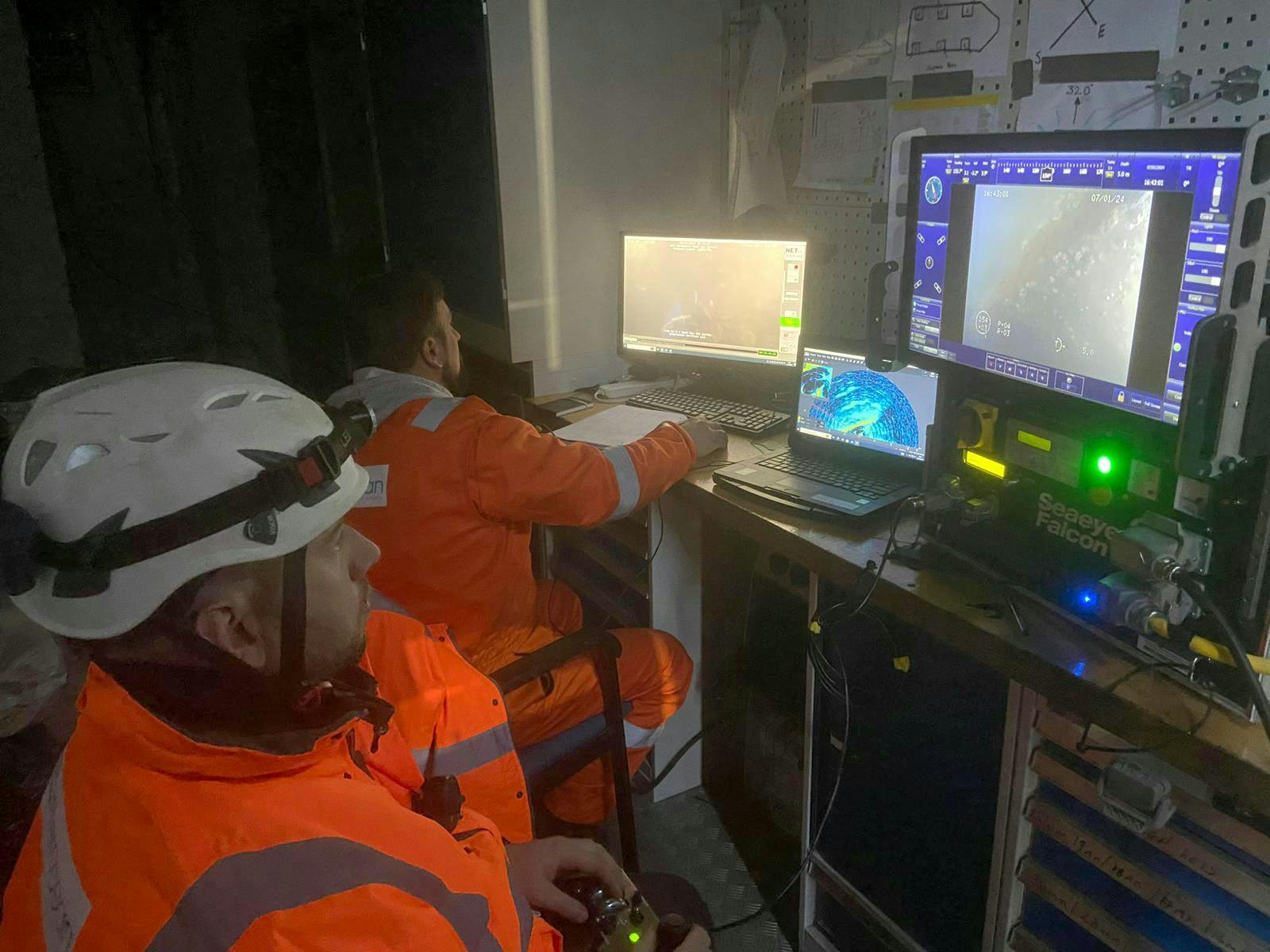Advantages of ROV and UAV technologies to the energy sector
Editor's note: This article first appeared in the 2024 Remote Inspections & Operations Special Report, which published within the January/February 2024 issue of Offshore magazine.
By Steven Henderson, Interocean Marine Services Ltd.
The adoption of advanced tools and systems has seen remotely operated vehicles (ROVs) and unmanned aerial vehicles (UAVs) become the technologies of choice in providing a safety-first approach for inspection and maintenance to the offshore energy industry, improving safety, performance and operating costs.
Interocean Marine Services' fleet of ROVs ranging from micro to observation class ROVs and its UAVs include advanced aerial drones and collision-tolerant confined spaces drones.
A recent project saw the utilization of both ROVs and UAVs, equipped with mission-specific inspection tools and sensors, to perform the DNV class internal and external structural assessment of six spud cans on a jackup barge vessel at a UK port. Spud cans play a pivotal role in anchoring vessels securely to the seabed. Regular assessment of the structures, welds and coatings conditions are vital to determine the extent of any deformation, damage, buckling or impact damage, which had been incurred during service.
Traditionally, external inspections of spud cans required human divers. Internal inspections required specially trained personnel to access the hazardous confined spaces, and the establishment of protocols for access, entry and rescue. These methods presented numerous limitations that have been resolved with advancements in technology. The quality of data typically gathered was limited due to visibility and restrictions around divers’ permissible time underwater, while the conventional approach posed significant safety risks to the personnel executing these tasks.
Interocean offers an integrated approach deploying both ROVs and UAVs for the inspection process of client equipment and vessels. Eliminating human involvement in hazardous environments, Interocean’s fleet significantly reduces project and safety risks, enhancing the well-being of inspection personnel as skilled ROV pilots can safely and effectively execute tasks, ranging from traditional inspections to equipment installation and challenging deepwater repairs, from afar. The combination of these advanced technologies also enhances the efficiency of inspections, reducing the overall time required for data acquisition, processing and management.
Case study
Interocean’s fleet of ROVs and UAVs equipped with high-resolution cameras and an array of sensors, allowed a detailed analysis of the spud cans’ conditions, showing precise identification of corrosion, structural defects or any signs of wear and tear, enabling proactive maintenance and, where necessary, repairs to be planned and undertaken to uphold the vessels' operational integrity.
The vehicles were maneuvered precisely around the areas of interest by the pilots, while inspection personnel observed and commented on the high-definition live video stream. Data was reviewed and detailed reports prepared for each area, ensuring a comprehensive inspection of the entire tank.
The ROV used for the underwater structural inspections was equipped with a high-pressure water jetting system, which removed surface contaminants prior to the capture of high-resolution images. Using this fleet for inspection, the data collected in real time provided an accurate assessment of each structure's integrity, resulting in the performance of an effective, class compliant inspection, ensuring the project’s success.

